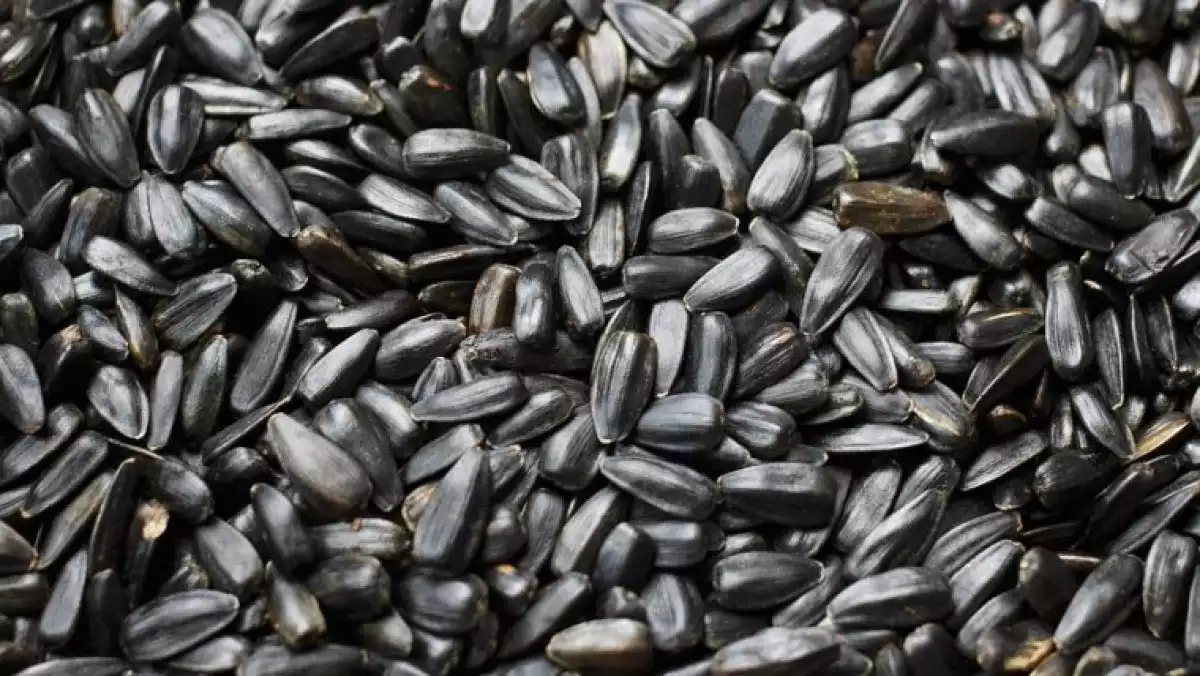
The most popular and used vegetable oil together with olive oil is sunflower oil: a cooking and edible oil that is usually used to accompany salads or to prepare industrial fried foods.
Although it is thought to be bad for you, if it is consumed raw, it has multiple beneficial properties for the body. In this article, we will show you, what sunflower oil is, what it is used for and what main benefits it has.
What is sunflower oil?
Within vegetable oils such as canola oil or olive oil, sunflower oil is one of the most used in gastronomy. It is a type of oil that is obtained by extracting the juice of sunflower seeds by pressing them.
The sunflower comes from North America originally cultivated around 1000 B.C. It was later when the Spaniards exported it to Europe around the sixteenth century. Nowadays, this type of vegetable oil is the most consumed in most countries.
When it is used as cooking oil, sunflower oil is available in different types: the normal one presents more quantities of linoleic and high-oleic acid. Its 80% of fatty oleic acid makes it very similar to olive oil. It tolerates high temperatures.
In addition, other varieties have been developed that allow their use in industrial frying to create products such as sweets or margarine. It mainly contains polyunsaturated, monounsaturated and saturated fats.
Sunflower oil vs. olive oil
Although olive oil is more popular than the sunflower one, there aren't so many differences when they are both consumed raw. Both are equally healthy and have significant nutritional potential.
However, olive oil is more recommended when cooking because when sunflower oil is subjected to high temperatures, it usually burns before and expels some substances that are not good for our body.

What is sunflower oil used for?
Sunflower oil, as many other vegetable oils, has different methods and uses. The most common uses are the following:
1. Cooking oil
Among its culinary uses, sunflower oil is used raw as a dressing for many sauces and salads. It is also used in cooking, mainly fried foods, as well as in the preparation of margarine.
2. Industrial uses
It is used as a biological fuel to produce biodiesel. In relation to this, sunflower oil is an alternative to gasoline and diesel.
3. Other uses
In cosmetics, this vegetable oil is the main ingredient of many beauty products because of its moisturizing and antioxidant benefits. It is also used as food preservatives.
Sunflower oil benefits
The best way to consume it is to use the one that has not been refined. It has more aroma, color and vitamin E than the refined one. The best way to eat it is raw in salads or not cooked at high temperatures. Below you can read some of the most common benefits of this vegetable oil.
1. It benefits the cardiovascular system
Sunflower oil helps to promote the health of our cardiovascular system because it has large amounts of fats considered healthy and good phytosterols. It reduces the risk of heart attacks and strokes by preventing the formation of blood clots.
Its vasodilator properties help improve circulation and regulate the heart rate and the blood pressure.
2. It relieves pain and prevents arthritis
This vegetable oil has anti-inflammatory properties that make it ideal for people who have arthritis. Also, as it is a food rich in vitamin E and Omega 6, it helps to relieve pain.
These anti-inflammatory properties also make it a natural remedy for asthma or premenstrual syndrome.

3. It helps to regulate cholesterol
It is rich in nutrients and its balance between polyunsaturated and monounsaturated fats, making it appropriate for regulating cholesterol and triglycerides. The excellent balance of sunflower oil promotes a proper balance of blood cholesterol levels.
4. It is good for your nervous system
It can be beneficial for people with emotional stress or anxiety. However, in these cases, the consumption of sunflower seeds is more recommended. Their healthy fats also help prevent neurodegenerative diseases such as multiple sclerosis and Alzheimer.
5. It is good for your skin
Its composition helps the skin not to dry out as it increases moisture retention and helps moisturize and cleanse it. Its soothing properties also protect and promote health. Topically, it helps combat expression lines and wrinkles due to its high percentage of linoleic acid. It is also an essential component in cosmetic preparations to reduce scars, acne or moisturizing creams.
6. It is antioxidant
As it is rich in vitamin E, sunflower oil has excellent antioxidant properties when it is consumed raw. It is said that including it in our diet delays the aging of the skin and its premature signs by applying it externally or eating its seeds, apart from consuming it in the form of oil.
7. It is good for your hair
Sunflower oil is suitable for hair care and is an essential ingredient in many anti-alopecic, anti-dandruff, antibacterial and moisturizing products. Mainly like many vegetable oils it hydrates the scalp and leaves the hair very soft.
It also contains components that prevent or delay hair loss such as oleic acids, linoleic and palmitic. Being rich in menthol also helps to combat dandruff.
References
Junker, R., Kratz, M., Neufeld, M., Erren, M., Nofer, J. R., Schulte, H., & Wahrburg, U. (2001). Effects of diets containing olive oil, sunflower oil, or rapeseed oil on the hemostatic system. Thrombosis and haemostasis, 85(02): 280-286.
Marinova, E. M., & Yanishlieva, N. V. (1997). Antioxidative activity of extracts from selected species of the family Lamiaceae in sunflower oil. Food Chemistry, 58(3): 245-248.
